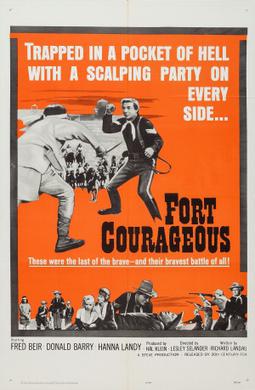Psychology is the scientific study of mind and behavior. Its subject matter includes the behavior of humans and nonhumans, both conscious and unconscious phenomena, and mental processes such as thoughts, feelings, and motives. Psychology is an academic discipline of immense scope, crossing the boundaries between the natural and social sciences. Biological psychologists seek an understanding of the emergent properties of brains, linking the discipline to neuroscience. As social scientists, psychologists aim to understand the behavior of individuals and groups.

Iridology is an alternative medicine technique whose proponents claim that patterns, colors, and other characteristics of the iris can be examined to determine information about a patient's systemic health. Practitioners match their observations to iris charts, which divide the iris into zones that correspond to specific parts of the human body. Iridologists see the eyes as "windows" into the body's state of health.

Carlos Castaneda was an American anthropologist and writer. Starting in 1968, Castaneda published a series of books that describe a training in shamanism that he received under the tutelage of a Yaqui "Man of Knowledge" named don Juan Matus. While Castaneda's work was accepted as factual by many when the books were first published, the training he described is now generally considered to be fictional.

Night terror, also called sleep terror, is a sleep disorder causing feelings of panic or dread and typically occurring during the first hours of stage 3–4 non-rapid eye movement (NREM) sleep and lasting for 1 to 10 minutes. It can last longer, especially in children. Sleep terror is classified in the category of NREM-related parasomnias in the International Classification of Sleep Disorders. There are two other categories: REM-related parasomnias and other parasomnias. Parasomnias are qualified as undesirable physical events or experiences that occur during entry into sleep, during sleep, or during arousal from sleep.
The adequate stimulus is a property of a sensory receptor that determines the type of energy to which a sensory receptor responds with the initiation of sensory transduction. Sensory receptor are specialized to respond to certain types of stimuli. The adequate stimulus is the amount and type of energy required to stimulate a specific sensory organ.

Nightmare disorder is a sleep disorder characterized by repeated intense nightmares that most often center on threats to physical safety and security. The nightmares usually occur during the REM stage of sleep, and the person who experiences the nightmares typically remembers them well upon waking. More specifically, nightmare disorder is a type of parasomnia, a subset of sleep disorders categorized by abnormal movement or behavior or verbal actions during sleep or shortly before or after. Other parasomnias include sleepwalking, sleep terrors, bedwetting, and sleep paralysis.
Conditioned taste aversion occurs when an animal acquires an aversion to the taste of a food that was paired with aversive stimuli. The effect explains that the aversion develops more strongly for stimuli that cause nausea than other stimuli. This is considered an adaptive trait or survival mechanism that enables the organism to avoid poisonous substances before they cause harm. The aversion reduces consuming the same substance in the future, thus avoiding poisoning.
The following outline is provided as an overview of and topical guide to psychology:
Nervous laughter is laughter provoked from an audience's expression of alarm, embarrassment, discomfort or confusion, rather than amusement. Nervous laughter is usually less robust in expression than "a good belly laugh", and may be combined with confused glances or awkward silence on the part of others in the audience. Nervous laughter is considered analogous to a courtesy laugh, which may be rendered by more of a conscious effort in an attempt to move a situation along more quickly, especially when the comedian is pausing for laughter.

Las vías del amor is a Mexican telenovela produced by Emilio Larrosa for Televisa in 2002.

The Enneagram of Personality, or simply the Enneagram, is a pseudoscientific model of the human psyche which is principally understood and taught as a typology of nine interconnected personality types.
Infant cognitive development is the first stage of human cognitive development, in the youngest children. The academic field of infant cognitive development studies of how psychological processes involved in thinking and knowing develop in young children. Information is acquired in a number of ways including through sight, sound, touch, taste, smell and language, all of which require processing by our cognitive system. However, cognition begins through social bonds between children and caregivers, which gradually increase through the essential motive force of Shared intentionality. The notion of Shared intentionality describes unaware processes during social learning at the onset of life when organisms in the simple reflexes substage of the sensorimotor stage of cognitive development do not maintain communication via the sensory system.
Exploratory thought is an academic term used in the field of psychology to describe reasoning that neutrally considers multiple points of view and tries to anticipate all possible objections to, or flaws in, a particular position, with the goal of seeking truth. The opposite of exploratory thought is confirmatory thought, which is reasoning designed to construct justification supporting a specific point of view.

Trypophobia is an aversion to the sight of repetitive patterns or clusters of small holes or bumps. Although not clinically recognized as a mental or emotional disorder, it may nonetheless be diagnosed as a specific phobia in habitually occurring cases of excessive fear or distress. Most sufferers normally experience mainly disgust when they see trypophobic imagery, although some experience equal levels of fear and disgust.
Positive-incentive value is the anticipated pleasure involved in the performance of a particular behavior, such as eating a particular food or drinking a particular beverage. It is a key element of the positive-incentive theories of hunger.

Guessing is the act of drawing a swift conclusion, called a guess, from data directly at hand, which is then held as probable or tentative, while the person making the guess admittedly lacks material for a greater degree of certainty. A guess is an unstable answer, as it is "always putative, fallible, open to further revision and interpretation, and validated against the horizon of possible meanings by showing that one interpretation is more probable than another in light of what we already know". In many of its uses, "the meaning of guessing is assumed as implicitly understood", and the term is therefore often used without being meticulously defined. Guessing may combine elements of deduction, induction, abduction, and the purely random selection of one choice from a set of given options. Guessing may also involve the intuition of the guesser, who may have a "gut feeling" about which answer is correct without necessarily being able to articulate a reason for having this feeling.
Sandra Trehub was a Canadian psychologist recognized for her research in the psychology of music. She completed her PhD in psychology at McGill University, and subsequently joined the faculty of the Department of Psychology at University of Toronto Mississauga, where she spent her entire career.

Fort Courageous is a 1965 American Western film directed by Lesley Selander and written by Richard H. Landau. The film stars Fred Beir, Don "Red" Barry, Hanna Landy, Harry Lauter, Walter Reed and Joe Patridge. The film was released on May 1, 1965, by 20th Century Fox.

Susan Alice Nolan is an American clinical psychologist who studies critical thinking in the classroom, assessment in higher education, mental health, and gender disparities in STEM fields. Nolan is a professor of psychology at Seton Hall University.









